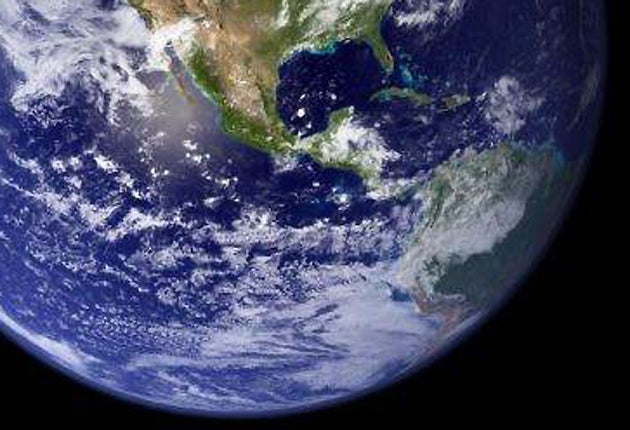Chile earthquake may have shifted earth's axis

Your support helps us to tell the story
From reproductive rights to climate change to Big Tech, The Independent is on the ground when the story is developing. Whether it's investigating the financials of Elon Musk's pro-Trump PAC or producing our latest documentary, 'The A Word', which shines a light on the American women fighting for reproductive rights, we know how important it is to parse out the facts from the messaging.
At such a critical moment in US history, we need reporters on the ground. Your donation allows us to keep sending journalists to speak to both sides of the story.
The Independent is trusted by Americans across the entire political spectrum. And unlike many other quality news outlets, we choose not to lock Americans out of our reporting and analysis with paywalls. We believe quality journalism should be available to everyone, paid for by those who can afford it.
Your support makes all the difference.Earth's days may be a little bit shorter since the massive earthquake in Chile. But the difference would be only about one-millionth of a second.
Richard Gross, a scientist at Nasa's Jet Propulsion Laboratory in Pasadena, California, and colleagues calculated that Saturday's quake shortened the day by 1.26 microseconds. A microsecond is one-millionth of a second.
The length of a day is the time it takes for the planet to complete one rotation — 86,400 seconds or 24 hours.
An earthquake can make Earth rotate faster by nudging some of its mass closer to the planet's axis, just as ice skaters can speed up their spins by pulling in their arms. Conversely, a quake can slow the rotation and lengthen the day if it redistributes mass away from that axis, Gross said today.
Gross said the calculated changes in length of the day are permanent. So a bunch of big quakes could add up to make the day shorter, "but these changes are very, very small."
So small, in fact, that scientists can't record them directly. Gross said actual observations of the length of the day are accurate to five-millionths of a second. His estimate of the effect of the Chile quake is only a quarter of that span.
"I'll certainly look at the observations when they come in," Gross said, but "I doubt I'll see anything."
Join our commenting forum
Join thought-provoking conversations, follow other Independent readers and see their replies
Comments